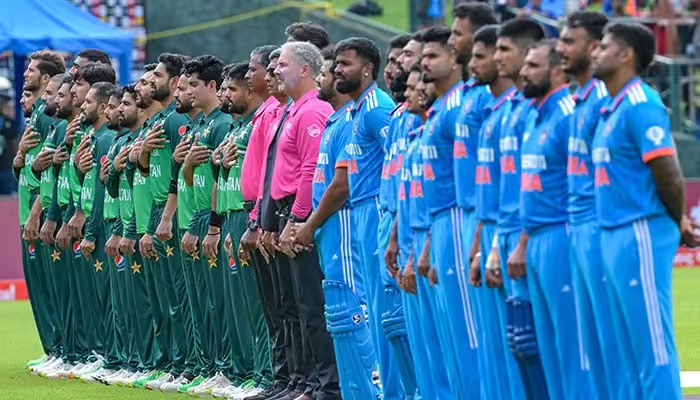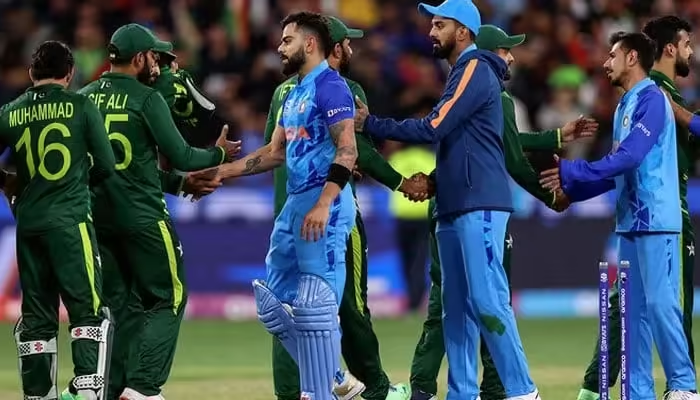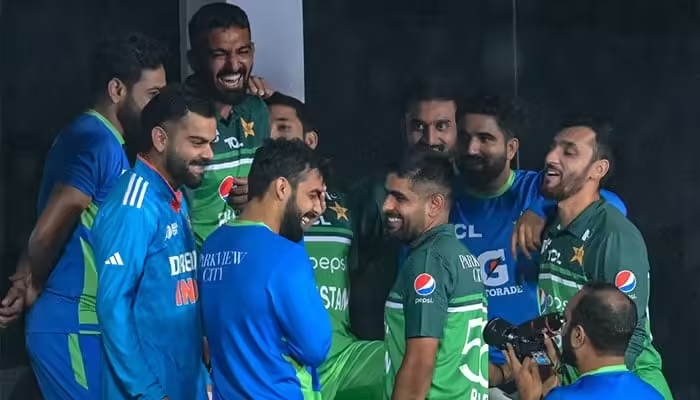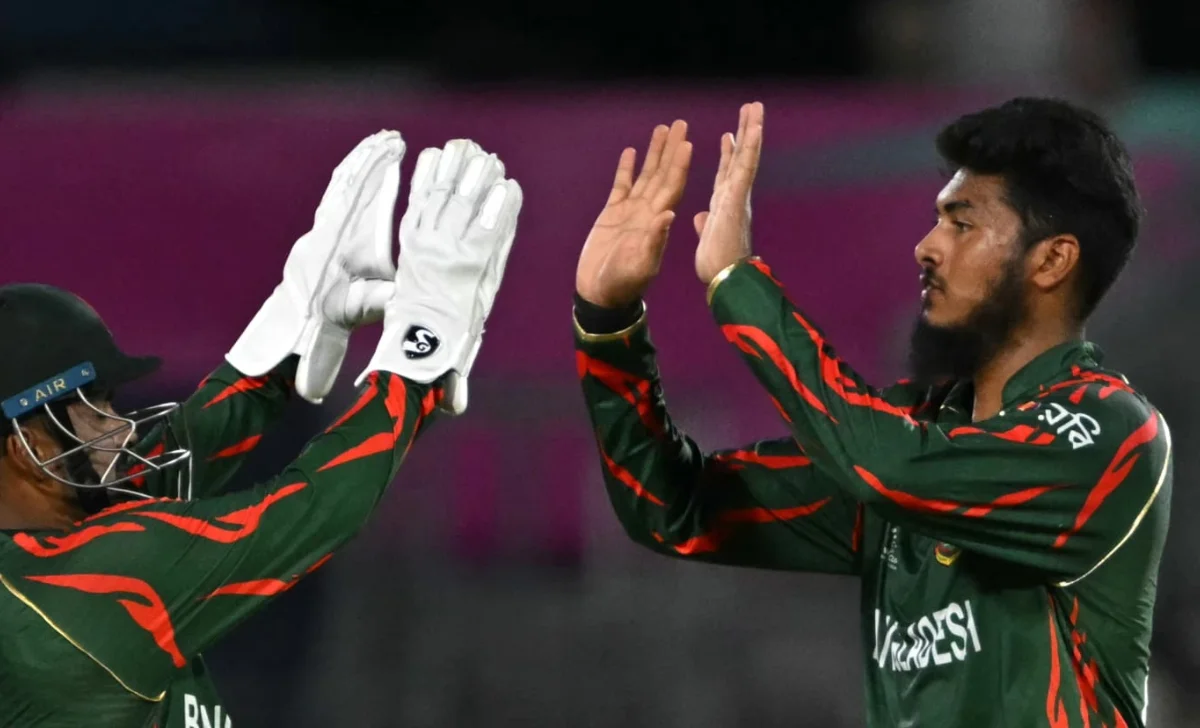The much-anticipated showdown between Pakistan and India in the 2025 ICC Champions Trophy could be held in the United Arab Emirates (UAE), with the UAE emerging as the leading option in a hybrid model approach to the tournament. This possibility follows the decision of the Board of Control for Cricket in India (BCCI) not to send its team to Pakistan for the eight-team event, according to a report by ESPNcricinfo.
This decision by the BCCI was reportedly communicated to the International Cricket Council (ICC) earlier in the week, causing an impasse in the tournament planning. Despite Pakistan being selected as the host country for the Champions Trophy 2025, India’s refusal to travel to Pakistan has led to uncertainty, with the ICC and the Pakistan Cricket Board (PCB) forced to consider alternative arrangements.
A hybrid model, which would see some matches held in a third-party country like the UAE, is now under discussion. The concept of a hybrid model was first proposed by the PCB during the 2023 Asia Cup when India also declined to play in Pakistan, resulting in a similar shared-hosting approach where matches were played in both Pakistan and Sri Lanka. Now, the ICC may once again look to adopt this model for the Champions Trophy, with the UAE emerging as the frontrunner due to its logistical advantages and proximity to Pakistan. Other nations, such as Sri Lanka, have also been considered, but the UAE’s infrastructure, experience in hosting international cricket events, and ease of access for fans give it a significant edge.

Pakistan’s Stand on the Hybrid Model
PCB Chairman Mohsin Naqvi has expressed reservations regarding the hybrid hosting model, emphasizing the need for a formal written objection from the BCCI. He stated, “We have clearly stated that they [the Indian cricket board] must give it to us in writing if they have any issues.” Naqvi underscored the gestures of goodwill that Pakistan has shown in recent years, likely referring to Pakistan’s compliance with hybrid hosting for the Asia Cup and other collaborative efforts within the ICC. Naqvi also stated that the PCB would consult the Pakistani government once a final decision is received from the BCCI before formulating a conclusive strategy.
Adding to this proposal, the PCB reportedly suggested that the Indian team could potentially return to India after each match to reduce their time in Pakistan. This was intended to address concerns from the Indian board regarding player safety and logistical complications. However, this solution would bring considerable complexity and potential disruption to the tournament schedule.
India-Pakistan Cricket Relations: A Long History of Tensions
India and Pakistan, whose rivalry is one of the fiercest and most-watched in sports, have not played a bilateral series since 2012-13. Since the 2008 Mumbai attacks, the BCCI has generally refrained from sending the Indian team to Pakistan, citing safety concerns and heightened political tensions. The two teams have only faced each other in ICC events and ACC tournaments like the Asia Cup, typically held on neutral grounds to avoid the political implications of a tour in either country.
The reluctance to travel is compounded by the fact that the two countries have been at political odds, which impacts all interactions between the boards. Cricket fans and officials worldwide hope for a resolution that allows this historic rivalry to continue on a fair stage, but the existing situation suggests that alternative hosting solutions are more viable at this time.

Implications of the Hybrid Model for ICC Tournaments
The ICC has worked in recent years to expand cricket’s global reach and bolster the international game. However, navigating the politics between India and Pakistan presents unique challenges. The adoption of a hybrid model reflects an attempt by the ICC to accommodate both sides, preserving the competitive integrity of the tournament while respecting the specific geopolitical constraints that are unique to India-Pakistan cricket relations.
Using the UAE as a host location could benefit the ICC financially, as matches between India and Pakistan typically draw massive viewership and revenue. The UAE, having hosted high-profile tournaments such as the IPL and the T20 World Cup in recent years, is well-equipped with modern stadiums and an established fan base of both Indian and Pakistani expatriates, making it an ideal venue for this setup. Additionally, the UAE’s proximity to Pakistan would simplify travel logistics for other participating teams and officials.
Conclusion: Awaiting Confirmation on the Hosting Model
As the Champions Trophy draws closer, all eyes are on the ICC, the BCCI, and the PCB for an official announcement regarding the hosting arrangements. The potential adoption of a hybrid model, with the UAE serving as a neutral ground for the India-Pakistan clash, could be a temporary solution that ensures the participation of both teams while maintaining tournament integrity. Nonetheless, the PCB has shown a clear preference for the traditional format, highlighting the underlying tensions and complexities surrounding international cricket governance when it intersects with politics.
The ICC’s decision could set a precedent for future tournaments, particularly in cases where political disputes complicate international sporting events. The outcome may ultimately reflect a compromise that, while imperfect, upholds the spirit of the game and brings fans the excitement of witnessing two of cricket’s greatest rivals face off on the world stage. With formal discussions still pending, the cricketing world waits with bated breath for the final word on what promises to be an electrifying Champions Trophy in 2025.



